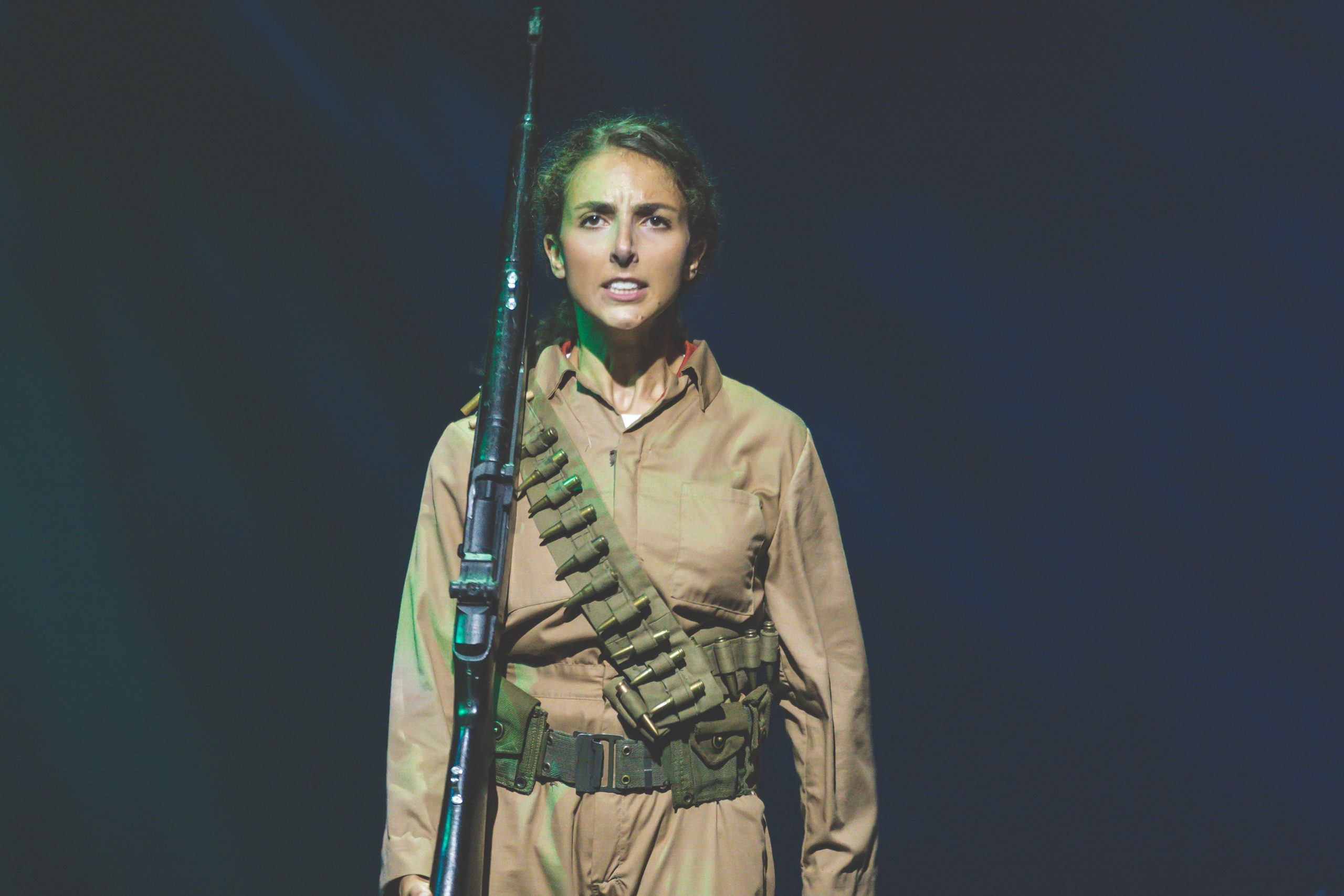
The Extraordinary Bravery and Short Life of Hannah Senesh Come to Life in the Revival of a Valuable Play
Smart, thoughtful and restless as she is, it’s not a big surprise that, after experiencing an anti-Semitic slight at school, she starts attending Zionist Youth meetings and, at age 18, applies to join a kibbutz in Palestine. “The future depends on us creating a sturdy and a beautiful Jewish state,” she later writes. Still, she wants to have an even greater purpose to her life (especially because she is consigned to doing everyone’s laundry at the kibbutz). As war progresses and Hitler’s troops creep closer to invading Hungary, she thinks about returning to Hungary to lead children and her mother to safety, and soon discovers that the British are organizing a plan that will allow her to do that.
Her journal entries allow us to understand her thoughts and the reasoning behind her actions. “With the whole world on fire,” she wrote in 1940, “we must all find our own way, our own place, our own calling.”
We see her at the end in a prison in Budapest, where she has been tortured by the Gestapo, glowingly happy to catch a glimpse of her mother, who has been brought there to see that her daughter is not safe in Palestine, as she had imagined.
The story is framed by testimony from her mother, Catherine Senesh. Both characters are played by the gifted Lexi Rabadi, who transforms herself with bits of costume and a change of voice, accent and manner. The only other actor is a young man who briefly appears as a soldier and a guard.
It’s fitting that the play is being produced by the National Yiddish Theater Folksbiene, the same group that gave us the outstanding Yiddish version of “Fiddler on the Roof” that is still playing, a year later, after moving from the museum to Broadway. The museum is a fitting location, too, since the play acts as a kind of counterpoint to the current exhibition, “Auschwitz: Not Long Ago. Not Far Away.” Hannah’s fortitude and her ordeal—how many of us could say we might have followed anything like her path?—also seem not long ago and not far away, especially with this compelling and intimate production. And if you enter the museum through the main entrance, you will have to walk past the German freight car that is part of the current exhibition.
The play itself, in an earlier version, debuted some 35 years ago. I reviewed it in 1984 for Newsday, when it ran in an out-of-the way fifth-floor theater on Second Avenue. A friend and I were the only audience members the night I went. A man sat nearby, but he turned out to be David Schechter, the play’s writer and director, trying to make the theater look not totally empty.
My non-Jewish friend and I were both deeply moved by the magical production. I wrote a glowing review, which persuaded a New York Times critic to attend. His glowing review got the show an even larger audience, and the play’s publicist kept sending me updates about its travels throughout the U.S. and the world for several years, crediting my article with launching its success. (I’m sure I was just a small part of it, but I love being able to say I had some impact: Jewish feminism in action!) The music, then as now, was composed and arranged by Steven Lutvak, with one song composed by the late Elizabeth Swados.
In the program, Lori Wilner, the original star and the play’s co-creator, writes about its moves to a major Off-Broadway house and tours in Israel and elsewhere, gathering prizes along the way. She adds: “Hannah’s courage and commitment to standing up to oppression in all its forms is as relevant as ever.”
Despite that history, I have found that very few people I know had ever heard of Senesh. I do hope that this time around, the play will have a similar long life for new audiences, beyond the August 18 scheduled end of its run.
One of the most arresting parts of the play is Hannah’s capture. The soldier pointing a rifle at her asks if she is English, as her uniform indicates. She could have said yes and perhaps gotten better treatment. But she draws herself up and proudly answers, “Nein! Ich bin Judish.”
Some people think that Hannah’s actions were “foolish,” her mother says toward the end. But the mission she was on “provided hope,” she says. “Some flicker of spirit, some will to live was reignited in those of us left.”
And now, in a theater in the bowels of a memorial to the Holocaust, a luminous “flicker of spirit” from a brave young Jewish woman reaches us again.



